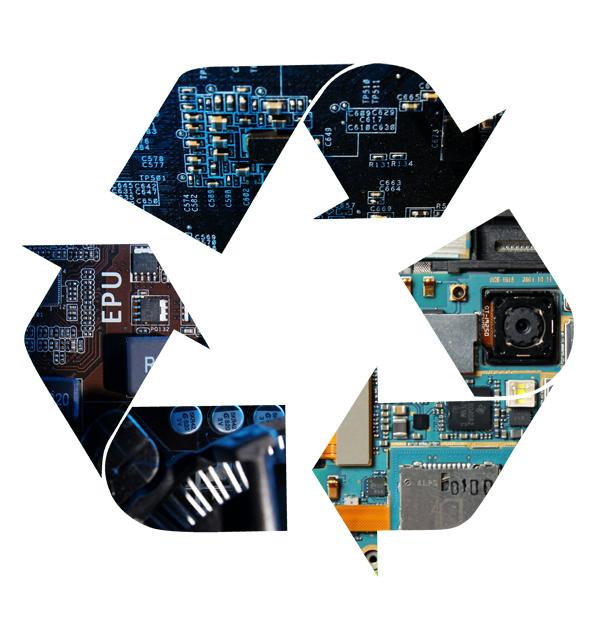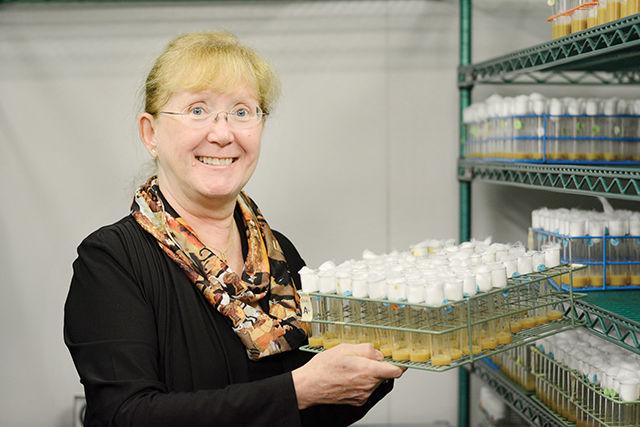Every time you turn around, a new generation of the latest high-tech gadget is released. Consumers have barely enough time to get a handle on their new iPods before a better model comes out.
Approximately 438 million electronic products were sold in the United States in 2009 – twice the amount sold in 1997. This increase in electronic sales has resulted in American households owning on average 24 electronic products, according to the Consumer Electronics Association.
But what is bought, especially something as replaceable as electronics, must be eventually thrown away. In 2008, the total amount of electronic waste in the United States alone exceeded 3 million tons.
While most of the e-waste produced winds up in landfills, a recycling movement has emerged in the hopes of reducing the amount of electronic waste. Analis Fulghum, the program manager for N.C. State Waste Reduction and Recycling Office (WRR), spearheaded a campaign on campus that focuses on reducing waste at a much more local level and has been working with University administrators on raising awareness about the benefits of electronic recycling.
“Last year, the Waste Reduction and Recycling Office reported that 292,000 pounds of electronic waste was diverted from the landfill through recycling and reused,” Fulghum said.
In 2010, state legislators passed N.C. Session Law 2010-67, banning TV and computer equipment from the landfill and furthering the need for responsible electronic recycling. Fulghum said one of the driving forces for enacting the law is that “the computer equipment and television waste stream is growing rapidly in volume and complexity and can introduce toxic materials into solid waste landfills.”
Currently 25 states have imposed electronic recycling laws, including North Carolina. To Fulghum, the reason is simple — old electronics contain hazardous materials like cadmium, mercury and lead and cannot be dumped in a landfill.
While many retail stores including, h.h. gregg, Staples and Best Buy are offering recycle programs at no charge, there is an even easier, more convenient way to get rid of that old hunk of metal.
In order to reduce the amount of e-waste from the University and to engage the entire N.C. State community, Fulghum and the staff at the WRR office have strategically placed approximately 200 bright yellow bins around campus. Each bin bears a sign that tells exactly what can go in it — everything from cords and USB drives to toasters, vacuums and computers. And yes, the most recently outdated model of the iPad can go in as well.
According to Fulghum, N.C. State only uses credible electronic recyclers that are certified to manage electronic recycling in a safe manner as well as provide a healthy working environment, like Power House Recycling in Salisbury.
“Often, recyclers will say they’re recycling electronics responsibly, but what happens is they send them to third-world countries, typically in Africa,” Fulghum said. “There, children and others break the electronics that have been dumped and take them apart to harvest the valuable materials. It’s dangerous both to the environment and to the people digging around in the scraps.”
Electronics contain harmful material such as lead, mercury and cadmium, but recycling ensures these toxins are disposed of appropriately. According to the Environmental Protection Agency, most electronic devices are made with metals such as gold, silver, platinum, palladium and zinc.
“Recycling electronics allows these metals to be recovered and used in new products, which is cheaper and requires less energy than mining and processing raw metals,” Fulghum said. “Also, recycling electronics such as cell phones allows them to be rebuilt and resold for lower cost, making electronics available to more people.”
Fulghum said the recycling industry alone has created more than 8,700 jobs in North Carolina.
In addition to the new electronic recycling bins, the WRR office has remodeled the general recycling program. Rather than having on-campus residents sort recyclable materials into various bins, the WRR office has combined plastics and paper into one bin to reduce the amount of incorrectly sorted materials.
“N.C. State is an extremely innovative place,” Fulghum said. “Anything we can do to make environmental safety easier will be top priority. It’s important that [the University] sets an example for the wider community to follow, and we’re confident we’re doing just that.”
Any questions regarding recycling should be directed to the Waste Reduction and Recycling Office either by email, at recycling@ncsu.edu, or by telephone, at (919) 515-9421.




